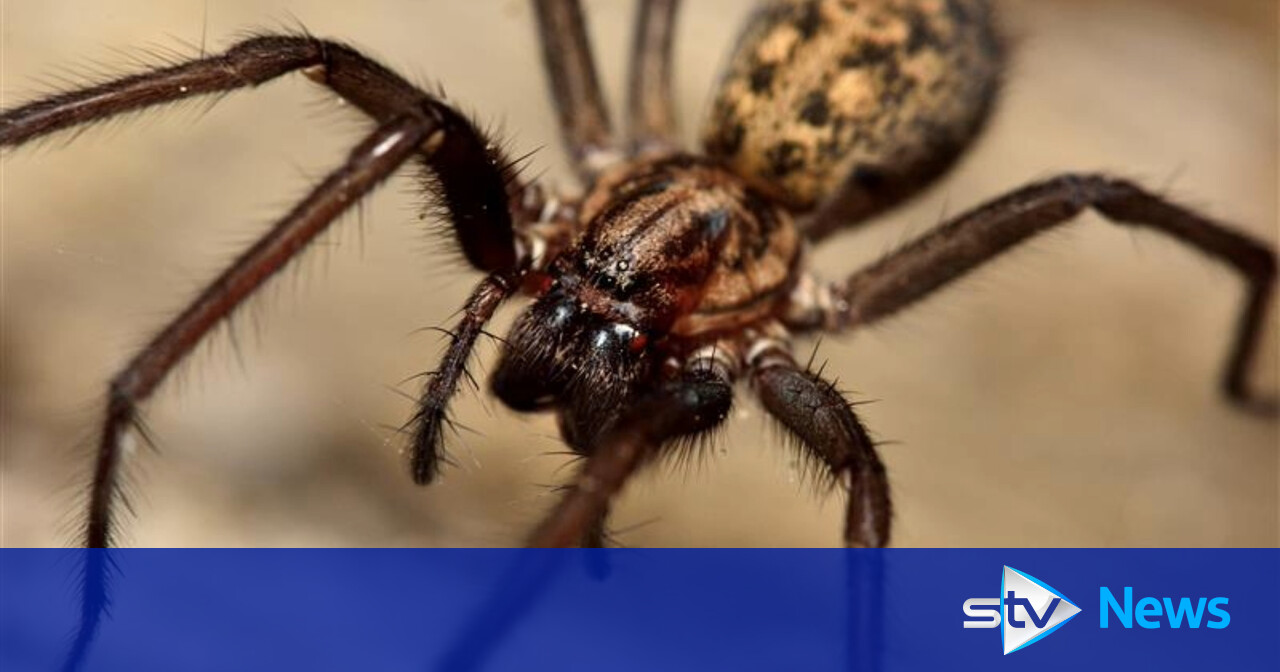As we move into the colder months, many people will prefer to stay cosy indoors, and some may have noticed more eight-legged visitors in their homes.
Rest assured, the increase in spiders in your home is completely normal for this time of year as the species enters its breeding season.
Chris Catherine, council member of the British Arachnological Society and director of Caledonian Conservation, said that most spiders in people’s homes are house spiders, which are “completely” harmless in Scotland.
He added that spiders live in people’s houses all year round because they can’t survive outdoors.
In fact, there aren’t any spiders in Scotland that pose a “significant risk to humans”, according to Craig Close, the senior animal experiences keeper for the Royal Zoological Society Scotland.
He added that around 440 species of spiders are found across the country, and only two or three of those could actually break the skin on a human.
“There are species like false widows that can give a bite that could be painful, but the only way these animals could pose a serious threat would be through anaphylaxis due to allergies to the venom,” he said.
“That being said, there hasn’t been a single confirmed death from this species in the UK.”
Mr Close explained that house spiders, also known as genus tegenaria, will go in search of a female at this time of year, which is why there is an increase in noticed visitors.
“The males can be identified by their ‘boxing glove’ shaped pedipalps that can be found on the front of the spider. The males are also typically smaller than the females,” he added.
Another common species of spiders found in Scottish houses is cellar spiders, which look smaller than house spiders and have long, spindly legs.
“These are the ones that we typically see building webs in the corners of rooms,” he said.
Cellar spiders may even be welcome visitors for some as they eat other species of spider, making people less likely to see larger house spiders.
“If disturbed, cellar spiders will whirl frantically, but this is all for show. These small animals cannot harm humans, so they are moving erratically in an attempt to scare off any potential danger,” Mr Close said.
People hoping to keep the eight-legged lodgers out of their houses for good may have a more difficult time.
“There are many methods that people have tried in order to keep spiders out of their homes, such as strong smells, i.e. citrus or peppermint, or even keeping conkers in your home. The efficacy of these methods is not known,” Mr Close added.
The best thing people can do with spiders in their homes is move them to a shed or somewhere else in the house they don’t mind them being.
Mr Close emphasised the importance of spiders in the ecosystem and said that having spiders in people’s homes does not have to be a “bad thing.”
“The best advice I can offer is that if you leave the spider alone, it will leave you alone,” he said.
“The classic phrase of ‘its more scared of you than you are of it’ is certainly true for these animals. We pose a significant risk of death to our native spiders while the vast majority cannot harm us in any way. “
STV News is now on WhatsApp
Get all the latest news from around the country
Follow STV News
Follow STV News on WhatsApp
Scan the QR code on your mobile device for all the latest news from around the country
